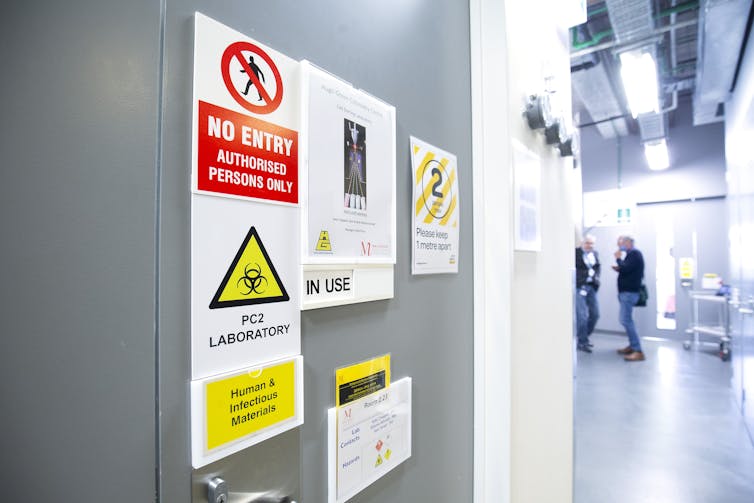How patent law and medicine regulations could affect New Zealand's access to a COVID-19 vaccine
- Written by Jessica C Lai, Associate Professor in Commercial Law, Te Herenga Waka — Victoria University of Wellington
New Zealand has allocated an undisclosed sum, in the order of hundreds of millions of dollars, to access COVID-19 vaccines when they become available.
The funding is on top of a NZ$37 million vaccine strategy, but the government has not released specifics because of commercial sensitivities that “could prevent the best possible deal for New Zealanders”.
Apart from the intricacies of global efforts to develop, test and distribute a vaccine, there are also domestic legal issues the government might need to consider, particularly in patent law and the regulatory review of medicines.
Legislative changes to future-proof the law could avoid delays and lower access costs.
Patent law and access
Some fear pharmaceutical companies could patent a COVID-19 vaccine and hold the world hostage, demanding monopoly prices.
But to get a patent the invention has to be novel and non-obvious. There is possibly enough public information about vaccines currently under investigation or in trials to make it difficult for a company to prove novelty or non-obviousness.
Read more: Whoever invents a coronavirus vaccine will control the patent – and, importantly, who gets to use it
Even if a vaccine were in some way patent-protected in New Zealand, the government is already negotiating for access.
If the negotiations fail or the prices demanded are too high, New Zealand law allows for compulsory licensing and Crown use of patented inventions. Both are also allowed under international trade law.
At the moment, an application for a compulsory licence is only possible after negotiations with a patent owner have failed and if three years have lapsed since the patent was granted (or four years since the patent application was filed). But international trade law states that any requirement to negotiate with the patent owner may be waived in the case of a national emergency or other circumstances of extreme urgency.
Parliament should consider amending New Zealand patent law to be clear that, in a national emergency, anyone can apply for a compulsory licence at any point, without the requirement to negotiate with the patent owner first.
Both international and New Zealand law allow pharmaceutical products manufactured under a compulsory licence to be exported to address a serious public health problem in another country. This might prove important for Pacific nations.
Read more: Why 'vaccine nationalism' could doom plan for global access to a COVID-19 vaccine
Government emergency access
Government departments can use patented inventions for the services of the Crown. This can be delegated, for example, to a local pharmaceutical manufacturing company.
In an emergency, there is no requirement for the Crown to negotiate a licence with the patent owner first. Nor does the Crown need to wait for a certain period of time to lapse.
This currently covers protecting New Zealand’s security or defence, or managing a state of emergency. A global pandemic can trigger a state of emergency, as happened in New Zealand in March 2020. But to future-proof the law, parliament should consider amending the definition of “emergency” to specifically include health emergencies.
Crown use provisions would allow the government to make and use any patented vaccine or medicine, and to sell any product in excess to its requirements. This would allow sale to a Pacific nation for a nominal amount.
 All new medicines must have regulatory approval from Medsafe.
Hagen Hopkins/Getty Images
All new medicines must have regulatory approval from Medsafe.
Hagen Hopkins/Getty Images
A vaccine must be safe
In contrast to patent protection, there are no exceptions to the regulatory review of medicines. Anyone who wants to distribute, sell or advertise a medicine in New Zealand must have regulatory approval from Medsafe.
Applicants must submit information and data about the pharmaceutical and the proposed on-label uses. This includes reports on any tests and clinical trials, and data on safety and efficacy. Medsafe decides whether to approve a medicine based on this information.
The process can be lengthy and could delay access to a vaccine. But parliament could legislate a narrow regulatory review “highway” — if regulatory approval for a vaccine is granted elsewhere, such as the European Union, Australia or Canada, it could automatically get approval in New Zealand.
Other aspects of the regulatory process will determine the cost of a vaccine.
Generic medicines — essentially imitations — make the price of pharmaceuticals competitive. Generic pharmaceutical companies don’t usually generate data or run clinical trials. Instead, they show their product is equivalent to the original medicine and ask Medsafe to use the original data to determine safety.
Read more: Creating a COVID-19 vaccine is only the first step. It'll take years to manufacture and distribute
But Medsafe is not allowed to use any data it receives for one application for the assessment of another for five years. Any vaccine could become obsolete within five years.
There is an exception allowing Medsafe to use data if it is “necessary to protect the health or safety of members of the public”. One can argue that having competition, lower prices and wide distribution of a COVID-19 vaccine meets this requirement. Parliament should amend the legislation to make this clear.
If we allow generic companies to rely on the data of original innovator companies, there would be at least two entities in the market competing with the same vaccine.
We don’t know what’s coming but that shouldn’t stop us from future-proofing our laws and regulatory processes for the different possibilities. New Zealand needs to take advantage of the flexibilities in international trade law to get a COVID-19 vaccine, possibly even two or three, to New Zealanders as quickly and cheaply as possible.
Authors: Jessica C Lai, Associate Professor in Commercial Law, Te Herenga Waka — Victoria University of Wellington



















